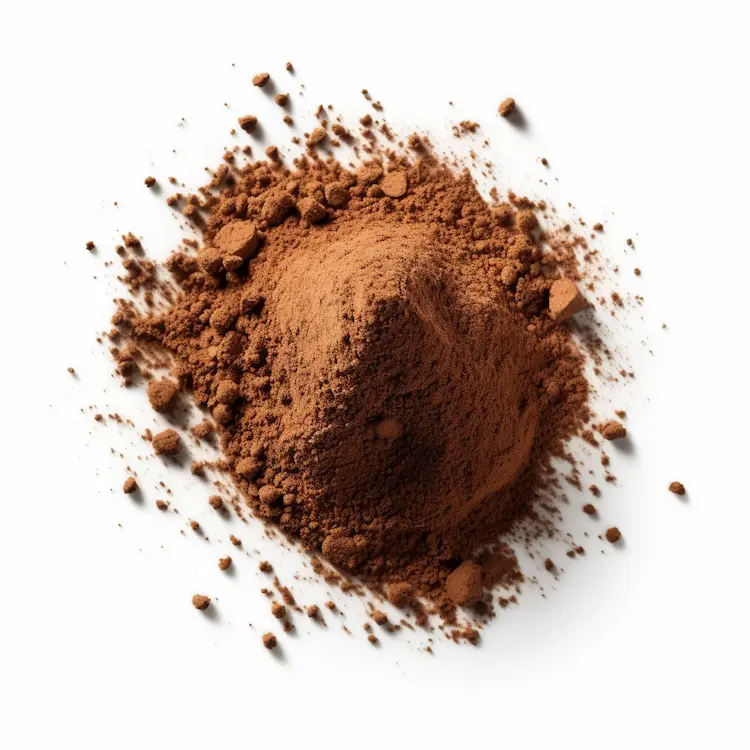Enzyme coffee has recently taken the spotlight in the world of weight loss, stirring quite a buzz. This innovative beverage combines your favorite morning pick-me-up with enzymes that are said to break down fat cells and aid in shedding those extra pounds.
But is this trending concoction too good to be true? In this blog post, we’ll dive deep into enzyme coffee and its potential health benefits while debunking any myths along the way.
Key Takeaways
- Enzyme coffee is a unique blend of traditional coffee beans and special enzymes designed to boost weight loss efforts through enhanced fat cell breakdown, improved digestion, increased energy levels, and antioxidant properties.
- The fermentation process used in enzyme coffee production increases antioxidant levels even further, making it an excellent beverage for promoting overall health.
- While some people have reported positive results from drinking enzyme coffee regularly as part of their weight loss routine, there is limited scientific evidence to support these claims. It should not solely be relied on as a solution for weight loss goals without incorporating proper diet and exercise habits into one’s lifestyle.
- Enzyme coffee may be a more healthful option than regular coffee due to its nutrient profile but remember that a balanced diet and regular exercise are essential components of any healthy lifestyle.
What Is Enzyme Coffee And Its Health Benefits?
Enzyme coffee is a type of coffee that goes through an enzymatic process, leading to improved digestion, increased energy and focus, and antioxidant properties.
Definition And Process
Enzyme coffee is a unique blend of traditional coffee beans and special enzymes designed to boost weight loss efforts through enhanced fat cell breakdown. High-quality green coffee beans are selected for their rich antioxidant properties and metabolism-supporting nutrients.
This innovative brewing technique creates a beverage that appeals to both casual coffee drinkers and health enthusiasts alike. By integrating the natural benefits of caffeine and carefully chosen enzymes, enzyme coffee aims to offer its consumers advantages such as improved digestion, increased energy levels, and weight loss support.
Benefits Of Fermentation
Enzyme coffee undergoes a process of fermentation that unlocks its potential health benefits. Fermentation is the chemical breakdown of substances by bacteria or yeasts, transforming them into healthy components with increased nutritional value and improved functionality.
Fermentation breaks down large molecules in coffee beans into smaller, more easily digestible ones, increasing their nutrient density. The enzymes produced during fermentation can also improve digestion while promoting better gut health.
Additionally, fermentation enhances the antioxidant properties of coffee beans, resulting in lower levels of harmful free radicals that cause inflammation and aging.
Improved Digestion
Enzyme coffee can help with digestion by breaking down food into smaller molecules, making it easier for the body to absorb. This is because of the enzyme content in the coffee, which encourages better nutrient absorption and promotes healthy gut flora.
Some of the digestive benefits of enzyme coffee are:
- Improved absorption of nutrients
- Stimulates digestive juices
- Assists muscle contractions in the gut
- Potentially boosts immune function
Additionally, caffeine stimulates digestive juices and promotes muscle contractions in the gut that aid in digestion. For those who struggle with digestive issues like bloating or discomfort after meals, incorporating enzyme coffee into their diet may provide some relief.
Plus, because enzyme coffee supports overall gut health, it could give the immune function an extra boost as well.
Increased Energy And Focus
Enzyme coffee is also known for its ability to provide a boost in energy and focus. The caffeine content in the coffee helps stimulate the central nervous system, leading to increased alertness and concentration.
It’s important to note that while enzyme coffee can provide an energy boost, it should still be consumed in moderation as excessive caffeine intake can lead to negative side effects such as jitters or insomnia.
Antioxidant Properties
Enzyme coffee contains antioxidants that can provide a range of health benefits. Antioxidants are compounds that help protect the body against harmful free radicals, which can cause cell damage and contribute to diseases such as cancer and heart disease.
Coffee is one of the richest sources of antioxidants in the western diet, and enzyme coffee takes this to a whole new level. The fermentation process used in enzyme coffee production increases antioxidant levels even further, making it an excellent beverage for promoting overall health.
These antioxidants may also be responsible for some purported weight loss effects by reducing inflammation and improving digestion.
Enzyme Coffee For Weight Loss
Enzyme coffee contains specific enzymes that are claimed to break down fat cells and aid in weight loss, but limited scientific evidence supports these claims.
Ingredients Of Enzyme Coffee
Enzyme coffee is a complex blend of ingredients that makes it an effective weight reduction beverage. It typically includes green coffee bean extract, yerba mate, guarana, and chromium supplements.
Green coffee bean extract contains chlorogenic acid that aids in fat cell breakdown and helps boost metabolism. Yerba mate and guarana are natural sources of caffeine that provide energy without the crash associated with other stimulants like sugar or artificial sweeteners.
What sets enzyme coffee apart from regular coffee is its enzymatic process during fermentation. The enzymes present in the beans break down proteins to release nutrients locked up by phytates and improve absorption of minerals like magnesium and zinc.
This results in an increased nutritional value per cup compared to regular coffee.
Claims Of Enzyme Coffee For Weight Loss
Enzyme coffee has been marketed as a weight loss beverage, with claims that the enzymes and caffeine in the coffee can speed up metabolism and break down fat cells. The ingredients of enzyme coffee, such as green coffee bean extract, yerba mate, guarana, and chromium supplements are said to aid in weight reduction.
It’s important to note that simply consuming enzyme coffee alone will not lead to significant weight loss without proper diet and exercise habits. As with any dietary supplement or drink, it’s essential to consult with a healthcare professional before adding it to your routine.
Limited Scientific Evidence
While many claims have been made about the weight loss benefits of enzyme coffee, there is limited scientific evidence to support these assertions. Although early studies are promising, there is not yet enough research to reach a conclusion on its effectiveness as a weight reduction beverage.
Additionally, while certain ingredients in enzyme coffee have shown potential for aiding in weight loss, such as green tea extract and yerba mate, it’s important to note that no single ingredient or supplement can replace a balanced diet and regular exercise routine when it comes to achieving long-term health goals.
Importance Of A Balanced Diet And Exercise
While enzyme coffee may have some potential benefits for weight loss and increased energy, it’s important to remember that a balanced diet and regular exercise are essential components of any healthy lifestyle.
A well-rounded diet that includes plenty of nutrient-dense foods like fruits, vegetables, lean proteins, and whole grains is crucial for maintaining overall health and preventing chronic diseases.
And while caffeine can provide a temporary boost in energy levels, it’s important to get enough restful sleep each night to ensure consistent energy throughout the day.
Enzyme Coffee For Increased Energy
Looking for a natural way to boost your energy? Enzyme coffee is worth a try! With natural sources of caffeine like yerba mate and guarana, this unique blend can help increase focus and stamina throughout the day.
Natural Caffeine Sources
Enzyme coffee is not only known for its weight loss benefits but also for its natural sources of caffeine. Unlike chemically processed caffeine, natural caffeine comes from plants that are harvested and prepared in a way that retains the beneficial nutrients.
Some of the natural sources of caffeine found in enzyme coffee include yerba mate and guarana. Yerba mate is a traditional South American drink made from leaves of the rainforest tree, ilex paraguariensis.
It contains xanthine alkaloids like caffeine, which can provide an energy boost without jitters or crashes commonly associated with other caffeinated drinks.
Guarana, on the other hand, comes from seeds found in Brazil’s Amazon basin and has been used for centuries by indigenous people as a stimulant. It provides sustained energy due to its slow release into the bloodstream compared to regular coffee.
Yerba Mate
Yerba mate is a popular ingredient in enzyme coffee that has been used for centuries as a natural stimulant. It contains caffeine, theobromine, and theophylline, all of which work together to stimulate the central nervous system and provide increased energy and focus.
Additionally, yerba mate is high in antioxidants and nutrients like vitamins A, C, E, B-complex vitamins, iron, calcium, magnesium, zinc and potassium.
Enzyme coffee with yerba mate may be just what you need if you are looking for an alternative to traditional coffee drinks. The combination of caffeine from both the coffee beans and yerba mate provides long-lasting energy without jitters or crashes commonly associated with other caffeinated beverages.
Plus, the added benefits of antioxidants found within this ingredient can help protect your body from harmful free radicals that contribute to aging processes.
Guarana
Guarana is a plant native to the Amazon basin that is used in many energy and weight loss supplements. The seeds of this plant are high in caffeine, containing about twice as much caffeine as coffee beans.
Guarana has been linked to increased energy levels and improved mental focus due to its high caffeine content. In addition, it has also been suggested that Guarana may aid in weight loss by boosting metabolism and promoting fat burning.
However, more research is needed to determine the effectiveness of Guarana for weight loss purposes.
Making And Brewing Enzyme Coffee
To brew the perfect cup of enzyme coffee, you’ll need to carefully select your beans, pay attention to the fermentation process, and choose the right brewing method – read on for all the best tips and tricks!
Bean Selection
Choosing the right coffee bean is a crucial step in making enzyme coffee. High-quality beans with a complex flavor profile will yield the best results. Arabica beans are often preferred over Robusta, as they have a more nuanced taste and lower caffeine content.
Look for freshly roasted beans to ensure maximum flavor and aroma. When selecting beans, consider the origin and roasting level as these can greatly impact the final taste of your enzyme coffee.
Fermentation Process
During the fermentation process, Enzyme coffee undergoes a unique process of breaking down large molecules into smaller ones by adding specific enzymes.
The fermentation process helps to remove the acidity found in regular coffee while also creating organic compounds that can enhance its taste and aroma. Fermentation is achieved by soaking green coffee beans for up to 24 hours in warm water before adding the enzyme mixture.
This allows various enzymatic reactions to occur, such as saccharification (the conversion of complex carbohydrates into simple sugars), proteolysis (the breakdown of proteins), and lipolysis (the hydrolysis of fats).
Roasting
Roasting is an essential aspect of making enzyme coffee. It’s the process that turns green coffee beans into the rich, aromatic dark brown beans we all know and love. During roasting, enzymes break down carbohydrates in the bean and create flavorful compounds like melanoidins.
Roasting can be done at home using a pan or oven, but it’s best to leave it to professional roasters who carefully control temperature and timing for optimal flavor and aroma.
And while light roasts are often preferred for enzyme coffee because they preserve more antioxidants, medium or dark roasts can still be used if you prefer a stronger flavor profile.
Choosing The Right Grind
Choosing the right grind is an important factor in making enzyme coffee. The grind size affects how quickly water can extract the flavors and nutrients from the coffee beans during brewing.
If you’re making enzyme coffee at home, it’s a good idea to experiment with different grinds to find what works best for your taste preferences.
It’s also worth noting that the type of brewing method you use will affect which grind size is right for your enzyme coffee. For example, if you’re using a pour-over brewer or an AeroPress, you’ll want to opt for a medium-fine ground bean.
Ultimately, finding your perfect grind comes down to personal preference – so don’t be afraid to try out different options until you get it just right!
Water Temperature And Coffee To Water Ratio
The temperature of the water and the ratio of coffee to water play a crucial role in brewing enzyme coffee. The ideal temperature for brewing enzyme coffee is between 195 and 205 degrees Fahrenheit.
At this temperature, the enzymes will break down the coffee beans properly, resulting in a rich and flavorful cup of coffee.
When it comes to the ratio of coffee to water, there is no hard-and-fast rule as everyone prefers their coffee differently. However, a good starting point is using two tablespoons of ground enzyme coffee per six ounces of filtered water.
This ratio can be adjusted depending on personal preference or desired strength. Remember that using too little coffee results in a weak cup while using too much can make it bitter.
By paying close attention to these variables when making your own enzyme brew at home you’ll soon find out what works best for you personally!
Brewing Methods
To make enzyme coffee, it is important to follow the right brewing methods. First, choose high-quality beans that are freshly roasted and ground coarsely.
Then, add water that is hot but not boiling to allow for proper extraction of the enzymes. A good rule of thumb is to use about one tablespoon of grounds per six ounces of water.
There are various brewing methods available such as drip coffee makers, French presses or pour-over methods which can all be used with enzyme coffee as well.
Regardless of your preferred brewing method, give your enzyme coffee enough time to steep and extract the nutrients properly before serving.
Variations Of Enzyme Coffee And How To Choose The Best One
There are various types of enzyme coffee available, including cold brew enzyme coffee and enzyme coffee with milk or spices.
Cold Brew Enzyme Coffee
One popular variation of enzyme coffee is cold brew. Cold brewing involves steeping coffee grounds in cold water for an extended period, resulting in a smooth and less acidic taste.
The fermentation process in enzyme coffee adds a unique complexity to the flavor profile of the finished product, making it ideal for cold brewing. The result is a refreshing and nutritious drink that packs all the benefits of traditional hot-brewed enzyme coffee but with added sippability and versatility.
Enzyme Coffee With Milk
Enzyme coffee with milk is a popular variation of enzyme coffee. It’s made by adding your preferred amount of milk to the brewed enzyme coffee, resulting in a creamy and delicious drink.
Enzyme blends found in this type of coffee can aid digestive health, increase energy levels, and offer antioxidant properties that boost immunity.
Additionally, it may help enhance metabolism and accelerate weight loss when combined with consistent exercise and a balanced diet. Enzyme coffee with milk provides all these benefits while also being an enjoyable morning or afternoon beverage choice.
Enzyme Coffee With Spices
Enzyme coffee with spices is a variation of enzyme coffee that offers an exciting twist to the traditional beverage. Commonly used spices include cinnamon, nutmeg, and cardamom, known for their antioxidant properties.
Cinnamon, in particular, helps regulate blood sugar levels and may aid in weight loss by reducing insulin resistance. Nutmeg has anti-inflammatory properties that improve digestion and reduce inflammation throughout the body.
When choosing enzyme coffee with spices, it’s crucial to look for quality ingredients without added sugars or artificial flavors.
Look For Quality Ingredients
When choosing the best enzyme coffee, it’s important to look for quality ingredients. Avoid products that make false claims or seem too good to be true. Instead, choose a trusted brand that uses high-quality coffee beans and natural enzymes.
When brewing your own enzyme coffee at home, choose freshly roasted beans and grind them just before brewing. Use water at the right temperature to bring out the flavors of the coffee without scorching it.
Remember that while enzyme coffee may have some health benefits, it should not be relied on as a sole method of weight loss or energy boost.
Overall, by choosing carefully when looking for enzyme coffee will result in great tasting drinks packed with nutrients that will complement any healthy lifestyle routine!
Avoid False Claims
It’s important to be wary of false claims when it comes to enzyme coffee. While supporters claim that the enzymes in this coffee can aid in weight loss, there is limited scientific evidence to support these claims.
Additionally, while enzyme coffee may offer some health benefits beyond caffeine, it should not be relied upon as a magic solution for weight loss. A balanced diet and exercise are still necessary for long-term weight management.
Choose A Trusted Brand
When it comes to choosing the best enzyme coffee brand, it is important to do your research and select a trusted company with quality ingredients. Look for a brand that discloses all of its ingredients on the packaging and has a good reputation in the market.
You can also check online reviews from other customers who have tried the product before.
Enzyme coffee should be viewed as a supplement rather than a replacement for proper diet and exercise. It’s always best to consult with your doctor or nutritionist before adding any new dietary supplements into your routine, especially if you have underlying health conditions or are taking medications that could interact negatively with certain compounds found in enzyme coffee.
Conclusion: Should You Try Enzyme Coffee?
Enzyme coffee is a tempting new trend for those wanting to lose weight or increase energy levels. The benefits of the fermentation process may improve digestion and provide antioxidant properties, but scientific evidence for weight loss claims is still limited.
If you do decide to try enzyme coffee, remember that a balanced diet and exercise are essential components of any successful weight loss plan. Have you tried enzyme coffee? Has it helped you to lose weight? Let us know in the comments below.
FAQs:
1. What is enzyme coffee?
Enzyme coffee is a type of coffee that has gone through an additional fermentation process to increase its nutrient content and flavor profile. This process involves adding specific enzymes to the beans during the roasting process, which helps break down proteins and sugars in the coffee.
2. What are the health benefits of drinking enzyme coffee?
Enzyme coffee contains increased levels of antioxidants, vitamins and minerals thanks to the added fermentation process. These nutrients help support overall health by reducing inflammation, improving digestion and boosting energy levels throughout the day.
3. How does enzyme coffee taste compared to regular coffee?
Enzyme coffee typically has a more complex flavor profile than regular roasted coffees due to its unique fermenting process. The finished product can have hints of fruitiness or floral notes along with chocolate or nutty flavors depending on roast level.
4. Where can I find enzyme Coffee?
Enzyme Coffee can be found online from specialty retailers as well as in select local independent cafes, particularly those focused on offering unique blends that cater towards more adventurous palates or customers seeking out nutritional boosts in their beverage choices- search for ‘enzyme’ friendly locations when looking for new places near you!

Coffee expert and industry insider, I’ve dedicated years to mastering the art and science of coffee making. From scrutinizing particle fineness to evaluating burr shapes, I delve into the minutiae that elevate coffee from good to exceptional. Whether it’s a complex pour-over or a robust espresso, my insights cater to those who don’t just drink coffee, but experience it.




